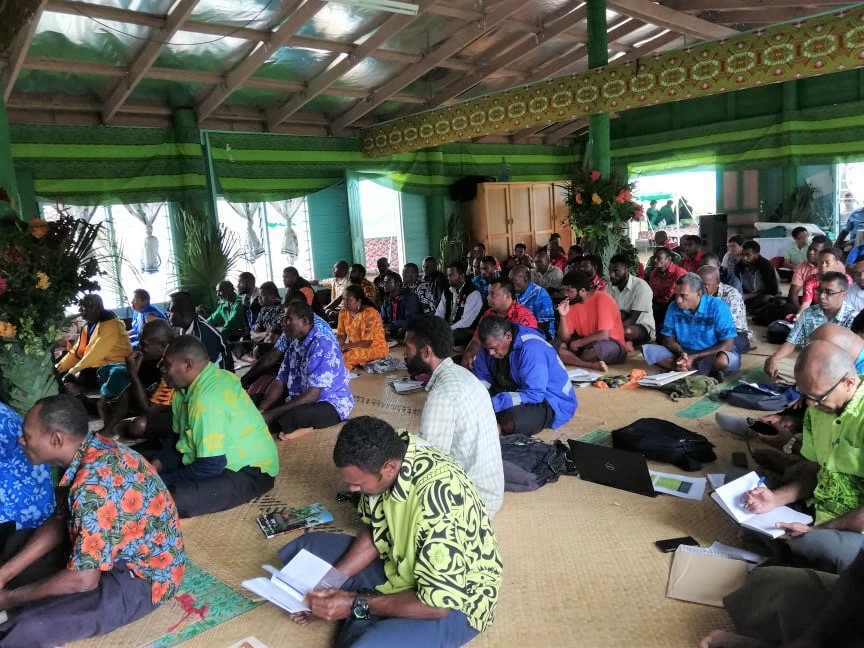Kava farmers training enlighten Bua farmers
September 7, 2020

Picture : Bua farmers at the Quality Standards Farmer Training targeting kava farmers in Saolo Wainunu in Bua.
The Quality Standard Farmers Training for kava farmers in Bua last week was deemed successful from the farmers who attended it.
Mr Maika Buli, 22yrs, from Banikea in the district of Lekutu has just started planting yaqona in the last two years and has 1000 plants already in the ground.
Speaking in the itaukei language, Mr Buli said he was grateful to the Ministry of Agriculture for conducting the training and even bringing it closer to them.
He said he had learnt a lot that would help him with his farming.
He said as a farmer the challenges he faced included the distance to travel to the farm from the village and the difficulty to travel to the farm when it rained.
His advice to young people is that they will only be poor if they do not work the land. He added when the land was utilized then would young people reap the benefits.
Ms Monika Cakobau is a yaqona farmer who lives in Wainunu, Bua.
She has been a farmer for over 13 years.
She explained in the itaukei language, the two-day training helped broaden her knowledge on the ‘solesolevaki’ concept that was shared on day one of the workshop.
Ms Cakobau said it was the first time she also learnt about the disease that affected the yaqona plant or dieback disease because it also affected some of her plants.
She said it was only through this training that she was able to recognize the disease affecting her plants and also how to address it.
She said the workshop was good for her as a farmer and a woman as there were things like budgeting that she learnt that would help her especially in planning the education of her sons where it was her aim to ensure that she and her husband would not need to look around again for funding to send her children for tertiary studies.
Ms Cakobau said she sold her yaqona in Labasa as well to those who traveled directly to her and was selling about 50 plants a week at $200 a plant.
She explained when she had first settled down in Bua, the couple set a goal that within five years of planting yaqona they would buy a vehicle. She said they managed to achieve that.
Her advice to women was to support their husbands’ when they go to the farm.
The Kava Task Force Committee under the Ministry of Agriculture facilitated the training. The same training has also been conducted in major kava producing areas in Kadavu, Lomaiviti, and Labasa.
The training included sessions on farmers learning the scientific aspect of the kava plant such as its agronomic characteristics, plant protection methods, and the analysis of lab tests. Kava exporters shared their experiences and the quality of kava they required from farmers. Aspects of trade were shared by Ministry of Health, Biosecurity Authority of Fiji, Ministry of Agriculture, and Fiji Crop and Livestock Council. There were sessions on the current legislations, the requirements from Fiji Revenue Customs Service, financial literacy to assist farmers and information sharing from PHAMA, a kava development partner.
-ENDS-
